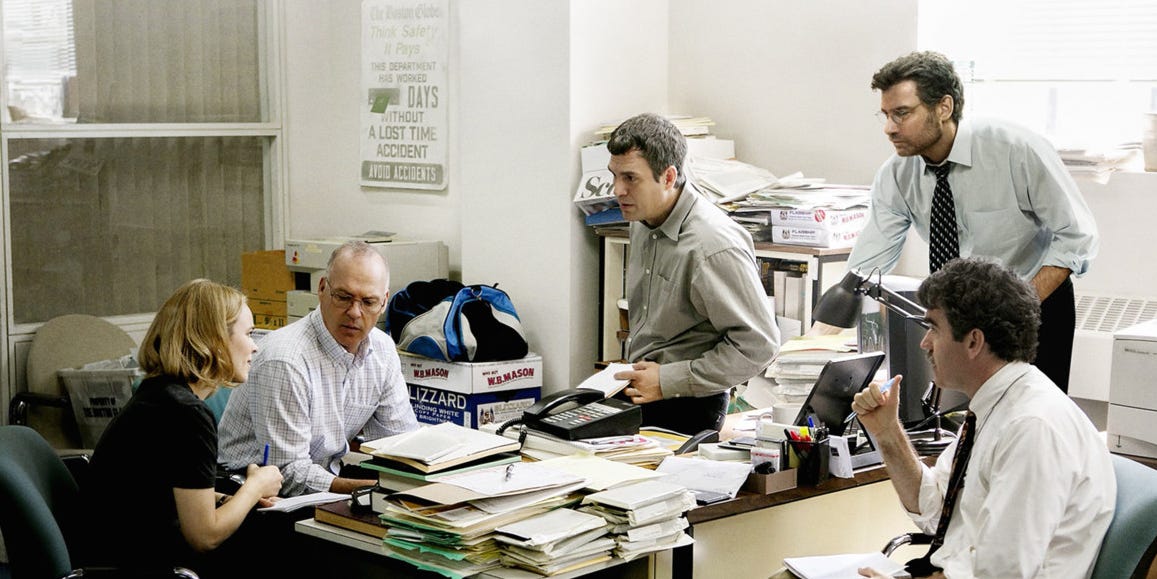Still from Spotlight, a 2015 film about an investigative unit at The Boston Globe that was produced from The Black List, an annual survey of “Hollywood’s most-liked unproduced screenplays”
There was an interesting announcement last week that The Black List, a writers’ service that grew out of “an annual survey of Hollywood's most-liked unproduced screenplays,” is expanding to fiction. The Black List had its beginnings in 2005 when Franklin Leonard, then a junior film executive, secretly surveyed his colleagues on their favorite unproduced screenplays and anonymously shared the results. The list, which refers ironically to the blacklisting in the forties and fifties of film industry figures accused of Communist sympathies, became an annual tradition and brought attention to a number of subsequently successful scripts. In 2012 Franklin Leonard opened a for-profit business, a platform that hosts unproduced screenplays for a $30 monthly fee and provides in-house readings and advice for $150. In 2022 the service expanded to theater and last week to fiction, creating a platform for unpublished manuscripts that faces both toward publishing and toward Hollywood, potentially dilating the direct-to-entertainment-industry fiction pipeline being pioneered by self-publishing sites like Wattpad. (In another example of reenvisioning book publication as a way-station toward a more expansive branding, merchandise, and rights enterprise, two influencers named Erica Cerulo and Claire Mazur recently announced a romance-based venture called “831 Stories,” which they describe as “an entertainment company with books at the foundation,” providing themes for merch, in-person events, and cross-genre rights sales, like the original song recorded for their first book Big Fan, coming out next week. Another effort to relocate decisions about who gets published is the recently announced book publisher, Compass Rose, that solicits input in publishing decisions from an advisory board of independent booksellers.)
Keep reading with a 7-day free trial
Subscribe to Book Post to keep reading this post and get 7 days of free access to the full post archives.




